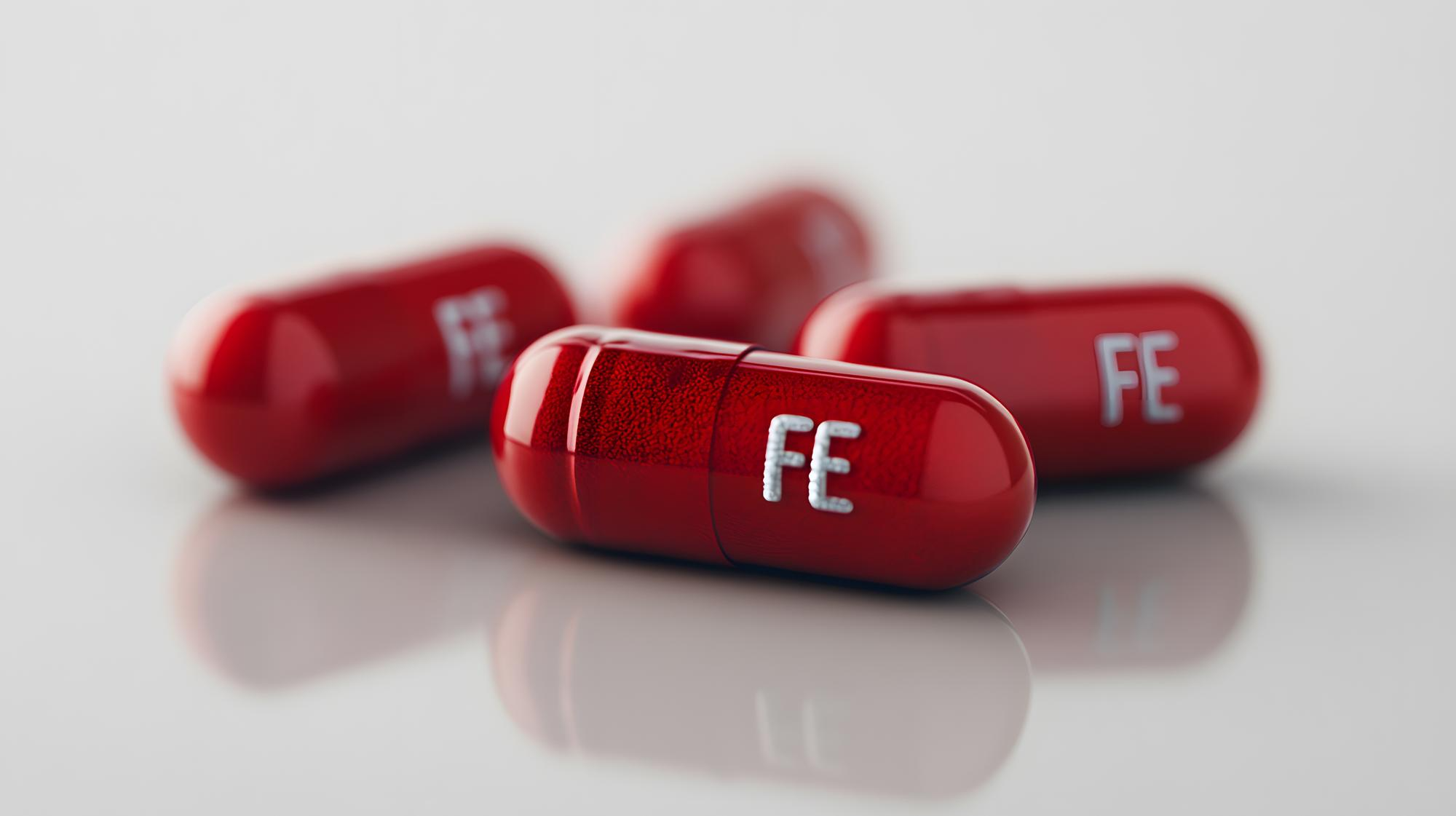
Iron supplement tablets commonly used to treat iron deficiency, anemia or fatigue.
Iron deficiency is one of the most common nutritional deficiencies globally and one of its earliest and most noticeable symptoms is persistent fatigue. Basically, people tend to relate tiredness to stress, poor sleep and a busy life. However, many times, the actual cause that lies beneath is in fact, low iron levels.
Iron plays an important role in energy production and oxygen carriage in the body, and since your body does not have enough of it, the energy levels drop noticeably. This blog explains how iron deficiency causes tiredness, the ways in which one can recognize signs and effective prevention and treatment.
Iron deficiency is a condition whereby your body does not have sufficient iron to make enough hemoglobin, the protein in red blood cells responsible for carrying oxygen to different parts of the body. Without adequate hemoglobin, various organs and tissues in your body cannot get enough oxygen, thus causing weakness, dizziness, tiredness and difficulty concentrating.
Although any person may become deficient in iron, certain groups have an increased risk, such as women, children, pregnant people and those with particular medical conditions.
Fatigue is the hallmark symptom of iron deficiency. If your blood cannot transport enough oxygen throughout your body, it's hard for your body to generate energy. Consequently, even light activities such as walking, climbing a flight of stairs or working half a day, may cause unusual fatigue.
The brain also suffers from a shortage of oxygen, thus affecting concentration, mood and alertness. Some people describe feeling the fatigue of iron deficiency as completely drained, mentally foggy or physically heavy even after resting.
Iron deficiency tends to develop gradually and so the symptoms are not immediately apparent. As time progresses, the body gives several warnings that include the following:
In case you are experiencing many of these symptoms together, it could indicate an underlying iron deficiency.
Lifestyle, dietary factors or health conditions may make certain individuals more vulnerable to iron deficiency. Greater risk is associated with:
Understanding your risk can help you take steps to prevent symptoms from getting worse.
Iron deficiency is a condition whereby the body loses too much iron, absorbs too little or does not get enough from nutrition. Some of the common causes include:
Early identification of the cause is important for effective treatment.
A simple blood test can diagnose iron deficiency. The doctors usually check:

A doctor drawing blood from a patient’s arm to diagnose iron deficiency.
With results indicating low iron or ferritin, your doctor may investigate the cause and then recommend a treatment plan tailored to your needs.
Treatment depends on the severity of the deficiency. Most cases can be corrected with changes in diet and supplements. Common treatment approaches include:
It may take a few weeks to notice improvement and several months to fully restore iron levels.
It is often possible to prevent or correct iron deficiency just by eating the right foods.
There are two types of iron:
Great dietary sources of iron include:
The habitual intake of these nutrients contributes to satisfactory iron levels.
Your body may not be able to properly absorb the mineral, even if you are consuming iron-rich foods.
You can enhance absorption by:
These small adjustments help your body use iron more efficiently.
Low iron levels affect your energy levels as well as they affect your physical, emotional and mental well-being. Some of the common complaints among people with iron deficiency are:
Addressing iron deficiency can dramatically improve overall quality of life.

A woman sitting with visible exhaustion and lack of energy, chronic fatigue, stress or burnout.
Concerning symptoms to seek immediate medical help for include the following:
This can prevent the deficiency from progressing into anemia, possibly necessitating stronger treatment.
At Prakash Hospital, comprehensive care for diagnosing and treating iron deficiency and related fatigue is provided. Our specialists are committed to identifying the root cause, improving nutritional intake and developing personalized treatment. Accurate testing, expert guidance and ongoing support help patients regain energy, strength and overall well-being.
Iron deficiency is a common but often ignored reason for fatigue. When iron is deficient in your system, energy levels go down, concentration weakens and daily tasks become much more difficult than they normally should be. Fortunately, an iron deficiency is both treatable and preventable.
With a proper diet, the right supplementation and timely medical support, you are well on your way to restoring your iron level and finding more energy and health. Understanding your symptoms and taking proactive steps is the key to long-lasting well-being and improvement in the quality of life.
We offer expert care across key specialties, including Medicine, Cardiology, Orthopaedics, ENT, Gynaecology, and more—delivering trusted treatment under one roof.
Prakash Hospital Pvt. Ltd. is a 100 bedded NABH NABL accredited multispecialty hospital along with a center of trauma and orthopedics. We are in the service of society since 2001.
OUR SPECIALITIES
Contact Us
D – 12A, 12B, Sector-33, G. B. Nagar, Noida, Uttar Pradesh 201301
+91-8826000033

© 2026 All rights reserved.
Designed and Developed by Zarle Infotech